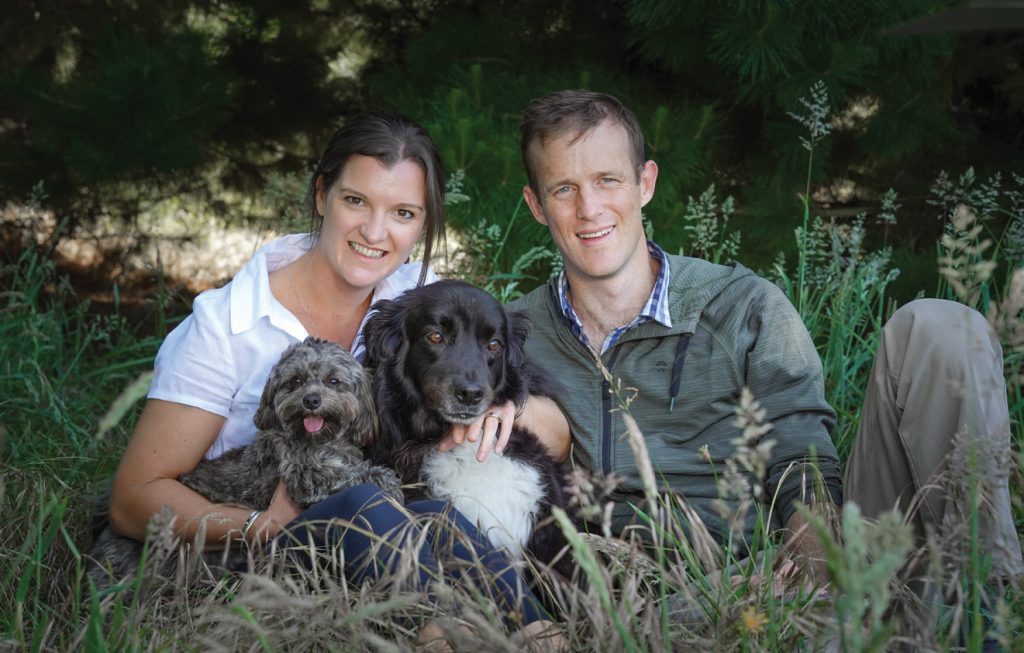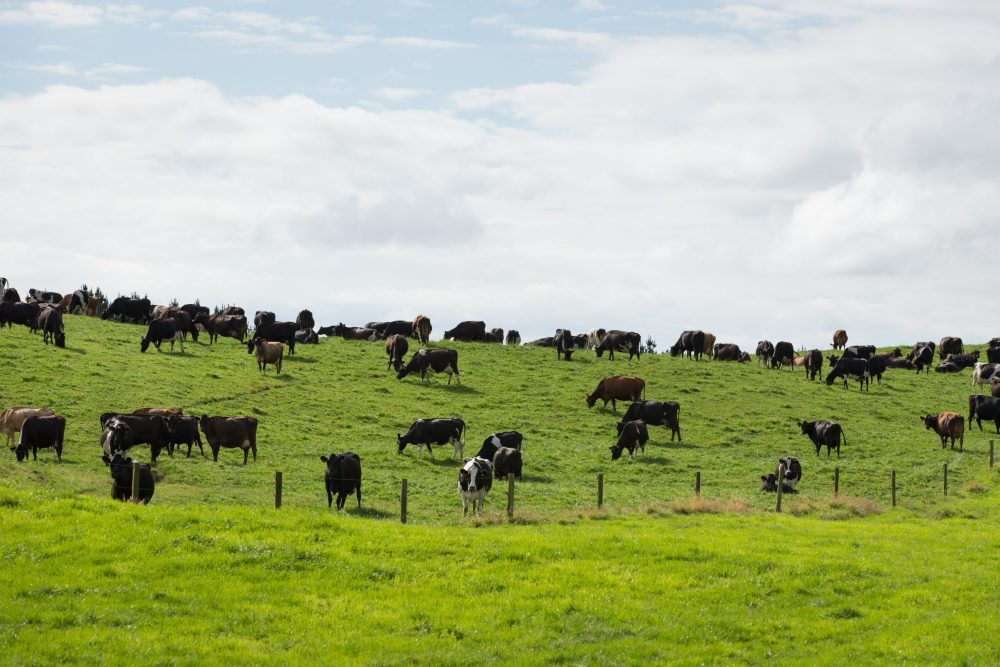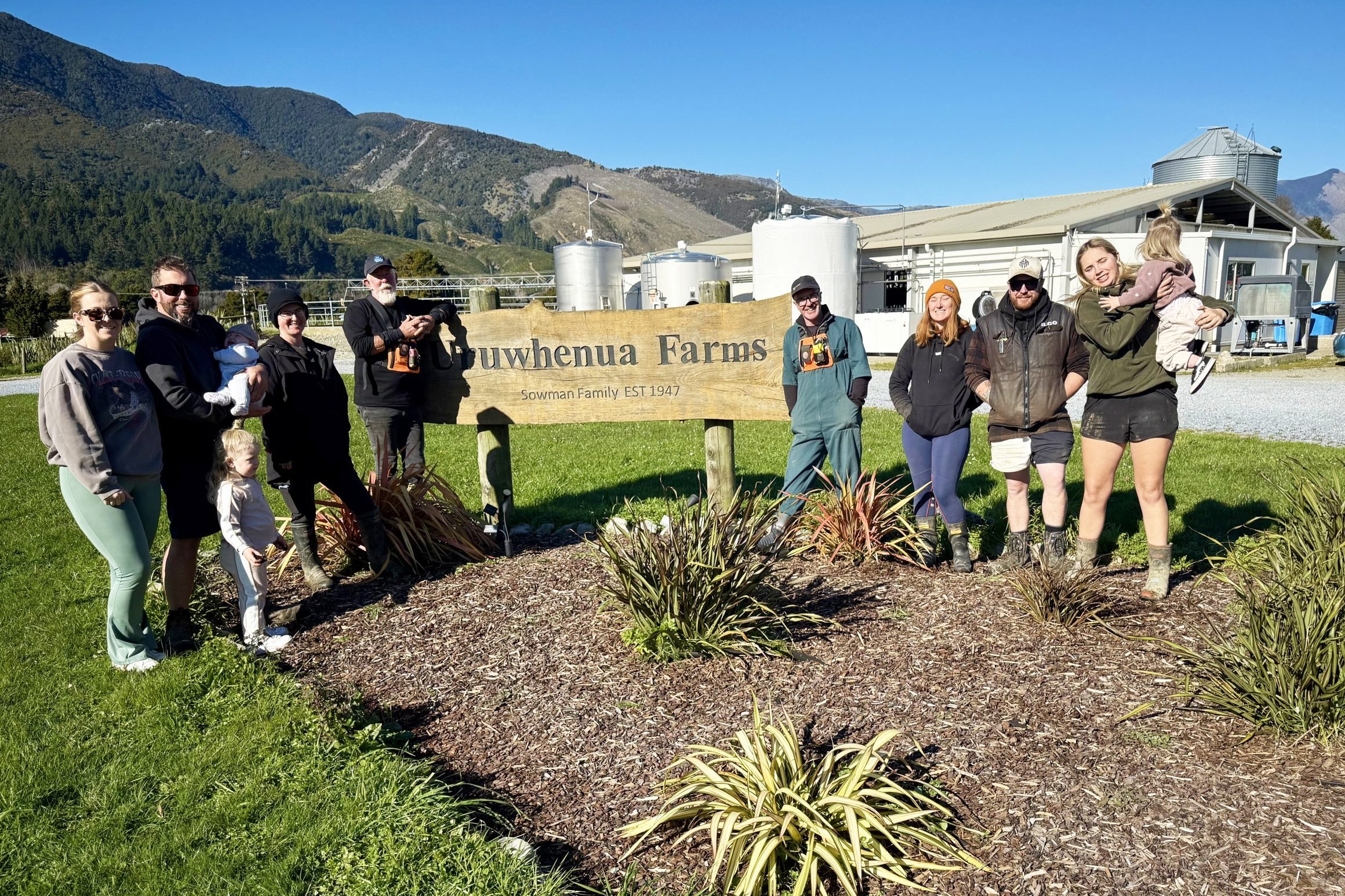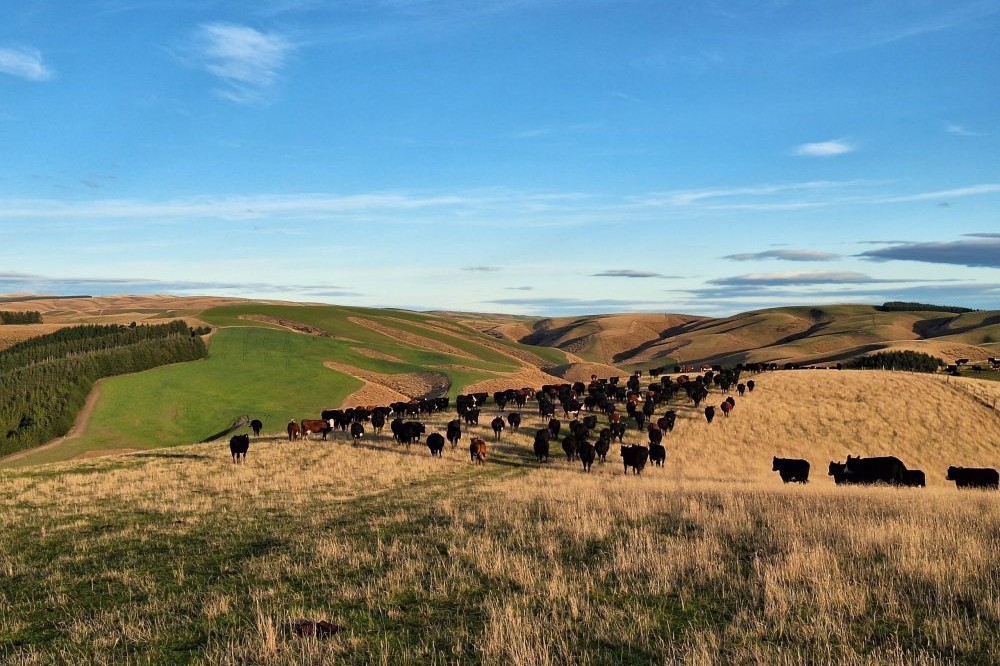Setting up an independent business, vets Ben Allott and his wife Samantha applied many of the lessons they had learned along the way.
It has been a while since I last wrote for Country-Wide and life is very different now to where I was several years ago.
Since we both graduated from vet school, Samantha and I have largely worked for large or corporate businesses. While these roles offered stability, good pay, and reduced after-hours commitments, we both shared an independent streak and had often talked about building something of our own together.
After a full year of developing business plans, lending applications, lease negotiations, resource consents, architects, building consents, tradesmen and buying an eye-watering amount of equipment, medications, and other supplies, we have opened the doors of Pegasus Bay Vets in North Canterbury.
Throughout this process I have been so grateful for the many, many pearls I have gleaned over the years, from the experiences of working with farmers, at field days and with Red Meat Profit Partnership (RMPP) groups. I thought I would share a few of the stand-out points that should be the focus of anyone considering a new venture or opportunity.

Become financially literate
Until six years ago I had never set my eyes on a set of annual accounts for a business. My introduction was when I arranged an RMPP workshop for a group of North Canterbury farmers with a farming accountant.
The ability to work through a set of accounts, understand the key drivers of profitability, understand how assets depreciate, understanding tax obligations and the timing of when these obligations will impact on plans was critical in our ability to apply for financing, to plan the size of our business and to predict the initial starting staffing, stock levels and equipment requirements.
I have a solid understanding of exactly how much income I require before I can hire another nurse, buy my next piece of surgical equipment, and stop my second job. The farmers and I who attended these workshops, learned so much – if you want to start your own venture I urge you to attend a course that will equip you with the same skills.
Set a conservative budget and strive to blow it out of the water
If a financial plan or budget breaks even with a conservative estimate of costs and returns then relatively small reductions in cost or increases in performance yield large returns, all with the certainty that if things don’t go exactly to plan that the bottom line is sound.
Too often I have observed a client budgeting on achieving 200+ grams a day in summer lambs, or budgeting a dryland fodder-beet crop to yield 25 tonnes drymatter (DM)/hectare to make a scenario work financially. I recall watching and listening with a lot of interest as North Canterbury farmers grappled with this very problem as they worked through the feasibility of the Hurunui Water Project. Some would argue too conservative an approach has led to missed opportunity and exposure to future risk.
In my recent venture I have found a lot of stress has been taken from my shoulders knowing my family will stay afloat with relatively modest projections of business income in the first couple of years.
Diversify your income streams to reduce exposure to risk and stress
When farmers bet everything on summer lamb finishing, their business becomes very exposed to the cost of trade lambs or a declining schedule.
Look for opportunities to spread risk and steady the ship. I took this on board myself and followed the example of many young farming couples who seek off-farm income while establishing. I have taken on a second role as an emergency hospital vet working overnight-shifts through the weekend. Yes, this takes away from the hours I could be working (potentially for a far higher return) in my own business, but the steady cheque week-in, week-out has given us so much more confidence and stress relief, particularly in the weeks where clients have been slow to walk through the doors. I can’t put a dollar value on being able to sleep soundly (most of the time).
Develop a business plan that plays to your strengths and minimises the impact of your weaknesses
Over the years I have had several very impactful examples of this imprinted in my memory. I often reflect on a field day in Hawarden celebrating the winner of the national hogget competition. As I prepared for and facilitated the day I was so impressed by a farming team that so clearly understood the strengths and weaknesses of their property and had developed a solid and relatively simple strategy to work to their strengths.
Performing a core business well on a consistent basis gives a business owner such a solid platform to react quickly when opportunities present themselves.
Don’t confuse profitability with higher income, complexity and busyness
I have watched with interest some farmers spending the whole winter shifting break fences in knee-high mud, running tractors all winter feeding out, hiring staff to cope with intensive systems, and then sowing crops, and harvesting silage and hay all spring and summer to prepare for it all again. All while another farmer down the road runs a slow winter rotation on grass with only breeding stock left on farm.
We have all been in farming long enough to know any broad-brush statement about which approach is better would be complete nonsense, but I recommend taking the time to investigate the Beef + Lamb NZ Economic Survey data available. It shows no clear strong trend for higher cost and more intensive systems to deliver a higher return on capital.
Some of the most profitable clients I have worked with have had remarkably simple, low-cost and low-stress farm systems. Samantha and I investigated the purchase of three different vet clinics before we committed to starting from scratch.
The same lesson was reinforced to me while reviewing the books of these businesses. I could extend myself, buy a business that had money pouring in the door, but also tie myself into a massively busy workload with large numbers of staff to support, all for the same return on investment as a small, family business that allows me to take time off to take my girls to gym or dance on a Friday afternoon.
You need a support network
A really strong one. For all the talk of efficiency and simplicity, our lives have been turned upside down and we have hit the wall several times. No new venture will be easy and I’m sure in a year I will have a whole new series of lessons to share.
For us, my parents have been the rock of support. They shifted from Dunedin to live five minutes from us. Mum regularly cooks a dinner, takes the kids for a day, for a night or a weekend, and I can’t count the number of times we have got back from work and the house is vacuumed.
Dad and I spent hours at the clinic putting cabinets in, painting, assembling equipment and helping tradesmen to keep the job moving. I can’t imagine making it through without them but at the same time we knew we needed the support and we would never have started without it.
Wish us luck, we still need it. The first three months of business have been reassuring but we have a long way to go. I certainly have a greater appreciation of all the other work that goes into keeping a business ticking over and in the future will be a lot more understanding of why a drench is overdue or why the BVD vaccination got missed this year.
Take care of yourselves, develop a support network, get down to the core strategy of your business and work on doing this well, every time.





